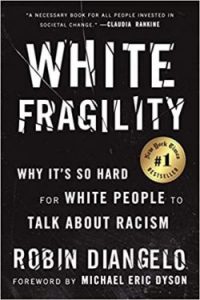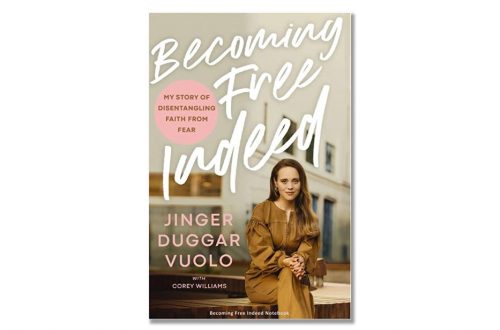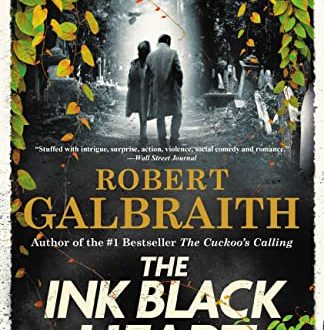 I was suckered into reading The Hunger Games by Ted Kluck and N. D. Wilson. I love both of those guys as writers, and they both posted reviews of the series. Just knowing they thought enough of the books to read them, I thought I might do so as well. Yet I wanted to hold off on reading their reflections until I’d made my way through the series myself. Now I wish I would have just read their reviews and skipped the books.
I was suckered into reading The Hunger Games by Ted Kluck and N. D. Wilson. I love both of those guys as writers, and they both posted reviews of the series. Just knowing they thought enough of the books to read them, I thought I might do so as well. Yet I wanted to hold off on reading their reflections until I’d made my way through the series myself. Now I wish I would have just read their reviews and skipped the books.
[You need to read Kluck’s and Wilson’s reviews in order to make sense out of the rest of this post. Also, spoiler alert.]
I understand the pathos that provoked Kluck’s positive response in his review. But at the end of the day, I resonate with the concerns raised by N. D. Wilson. Despite Katniss’s initial sacrifice for her sister, the rest of Katniss’s story is eaten up with the Darwinian desire to outlast the other hapless victims in Panem. In many ways, Katniss is just as ruthless as any other villain in the story. She is just as willing to kill innocents, and she accommodates herself quite nicely into the machinations of the tyrannical “Capitol.” In short, she was a terrible protagonist. By the end of the series, I just wasn’t that into her.
The story began with great promise with Katniss’s great sacrifice at the first “reaping,” but by the end of book three I felt I was being forced into a teenage girl’s self-absorbed puppy-love-triangle melodrama–sort of like the Twilight series with less vampires and more spaceships. It was as if the big question the books sought to answer was who Katniss would end up loving—sappy Peeta or scrappy Gale. Perhaps the author calculated this particular plot point to draw in the much-coveted adolescent female demographic. It was very reminiscent of the “Team Edward/Team Jacob” meme connected with the Twilight series and just as manipulative.
I enjoy fiction when I enjoy the characters. In The Hunger Games, however, the characterization really missed the mark in my view. Consequently, I couldn’t wait for it to be over. Now I’m glad it is.
——-
P.S. I listened to the audiobook version of these books through Audible.com. Check it out here.




10 Comments
Mike Cosper
While I sympathize somewhat with Wilson’s take on the book, I think his comparison with Gladiator is unfair to Katniss for a few reasons.
1) Maximus wasn’t an oppressed slave who threatened an empire. He was a general who was a threat to the corrupted heir to the throne. In other words – he always threatened the empire. He was a war hero and a respected citizen.
2) Katniss was a citizen under radical, totalitarian subjugation for her entire life. People who live under totalitarian regimes (like North Korea or Nazi Germany) and particularly those who live their entire lives under such rule have to discover their personal wills and ability to judge.
3) I”m sympathetic to Katniss’ participation in the games. Again – she’s not a military general, she’s a teenage girl, frightened out of her mind. I’m also not sure that the characterization of her as murderous is fair. She’s desperate for survival. The tracker jackers scene strikes me as the only “murderous” moment, and it comes as a desperate attempt to escape from certain death. Interestingly, Collins doesn’t let her escape from that moment unscathed – she’s stung by the bees and suffers for it.
4) Considering Maximus again – how many people did he kill in the arena before his moment in front of the emperor? Why are those murders – which are just as much a part and parcel of the system of slavery and subjugation – okay and Katniss’ antics with the tracker jackers and bow and arrows unacceptable. I’m not sure there’s a difference. Ultimately both colluded with the system of oppression up to a crucial moment, and then refused cooperation.
5) As for Katniss being a terrible protagonist – I’ll say two things. First, this was teen fiction, so the love story is just an irritating part of the genre. But second, I think what makes her so interesting is her reluctance to be a protagonist at all. I think Collins did a good job of writing a character who was confused, and from whom the circumstances of life demanded far more than she was capable.
Just a few thoughts…
Denny Burk
Thanks, Mike! Good thoughts. Did you review this anywhere? I thought I remembered seeing something from you, but I couldn’t find anything when I went looking for it this weekend.
Mike Cosper
I didn’t review it yet. I’d like to at some point. There’s a whole stream of thought in the books about media, voyeurism, and oppression that I’d like to reflect on at some point, but lately there’s only been so many hours in the day.
Denny Burk
I’d like to see it when you do.
Kevin Stilley
I guess I see these books very different from most of my peers. I would put it in a similar category with Stephen Crane’s “Red Badge of Courage” or Erich Maria Ramarque’s “All Quiet on the Western Front.” It isn’t about an admirable protagonist or the celebration of great moral truths; it asks questions that should make us look with new eyes at our own
history and our own social values.
Here is a list of discussion questions that I originally wrote for my own children, but ended up sharing with our church.
http://aroundthetree.org/general/hunger-games-discussion-questions/
Denny Burk
Good stuff. Thanks, Kevin!
Larry Geiger
Angst. Teenage Angst Books. My wife is a librarian. She reads children’s and juvenile fiction sometimes. As she describes it to me, it’s always about the angsting. It’s a teenage thing. We adults just don’t get it. Maybe, Denny, you’re just too far away from how a 15 year old girls mind works 🙂 I know I am.
Adam Omelianchuk
Denny, what made you want to read the books after those two reviews? They are so down on them!
I posted the reason why I liked them…a lot.
http://ochuk.wordpress.com/2012/05/31/why-i-loved-the-hunger-games-trilogy-spoilers/
Denny Burk
I saw the reviews but didn’t read them until after I read the books.
Adam Omelianchuk
Oh, woops. Silly me. I see that you said that in the post 😛